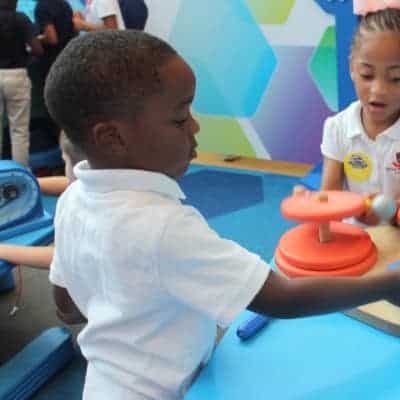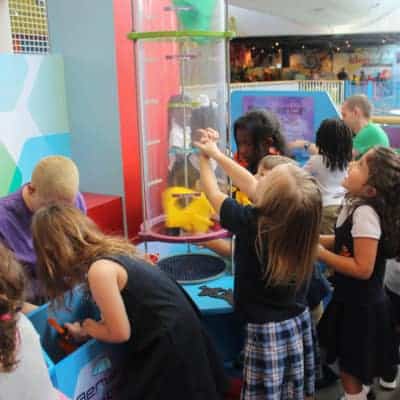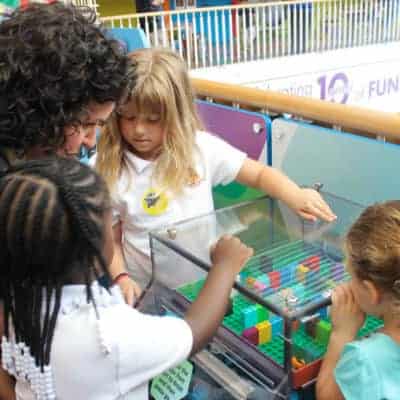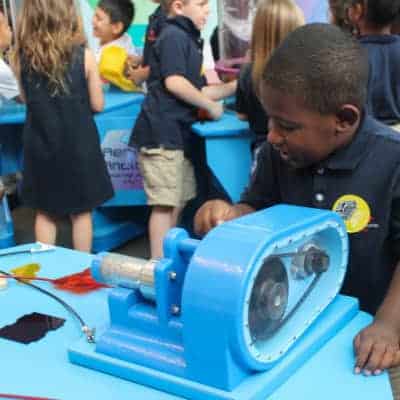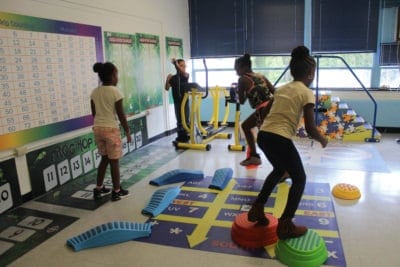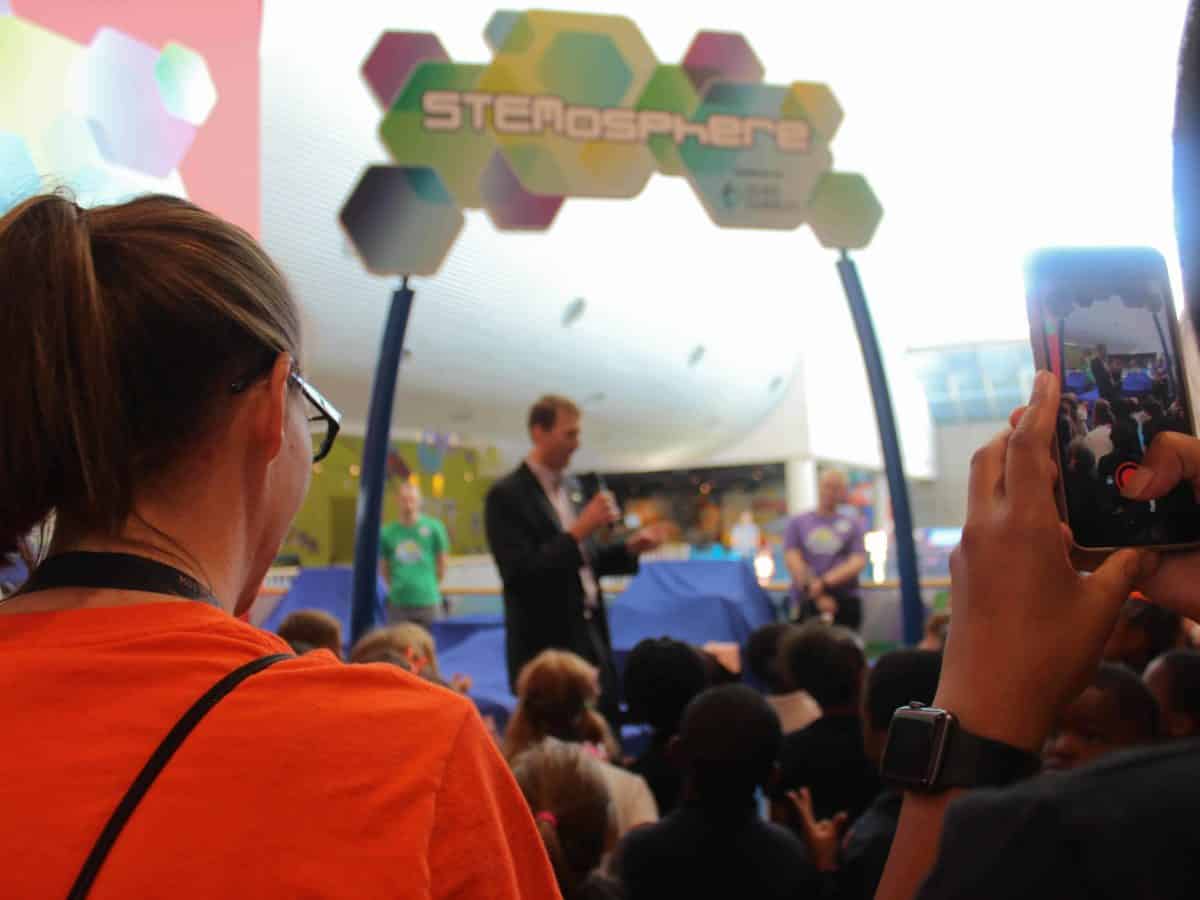

“Can you all say that with me again?” asked David Fountain, Duke Energy’s North Carolina president, to an audience of kindergartners from Wilson County who gathered on the second floor of Marbles Kids Museum last Thursday.
“Science, technology, engineering, and math,” the crowd of students responded in unison, defining STEM.
“At Duke Energy, we understand how future careers are really going to be dependent on proficiency in science, technology, engineering, and math,” Fountain said. “And what we wanted to do, as we have for a number of years, is partner with Marbles [in a way] that we can make that fun for kids to get exposed to STEM areas.”
Behind Fountain, museum employees stood ready to uncover the updated STEMosphere exhibit, made possible by a $50,000 grant from the Duke Energy Foundation. For Sally Edwards, CEO of Marbles Kids Museum, the longstanding partnership allows for a “whole new way to play.”
“For us the opportunity here at Marbles is to learn through play, where in more formal education settings when you think about STEM, a lot of times it’s about content,” Edwards said. “And here it’s about approach. It’s about curiosity.”
“Kids are born with their natural curiosity, and that really aligns well with future careers in STEM.”
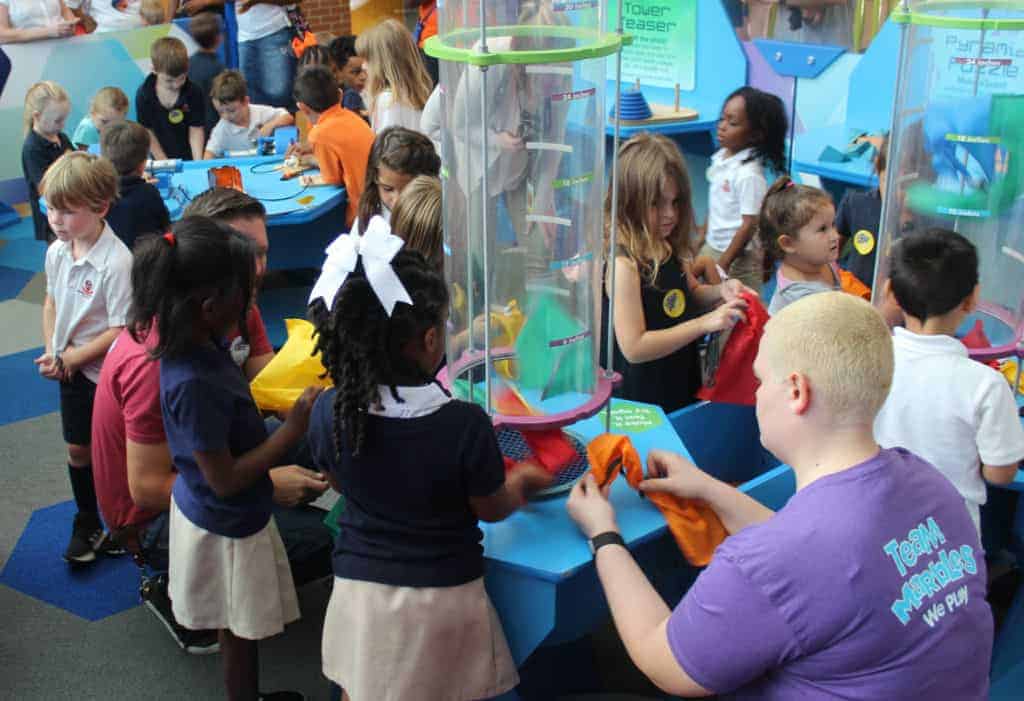

In the updated exhibit, kids can play with electrical circuits (safely!), build structural towers, and organize different geometric shapes and patterns using magnets.
“We have two brand new activities as well,” Edwards said. “One that is a coding activity … Kids through sequencing and coding can work the little marble through the maze.”
“We have another turn table exhibit called Sequence Sounds,” Edwards added. “Through moving different parts on a revolving turn table, kids have the opportunity to create new sounds, to change the speed, to change the direction — just to see hands-on how the things that they do help make a difference in outcomes.”
Fountain said it was an exciting morning to see the children go into the updated exhibit and have fun playing with these concepts in STEM.
“I want to thank our great, great friends at Marbles in all the work they do for providing a safe place and an open, diverse, and inclusive environment where we can all play together and learn together,” Fountain said.


